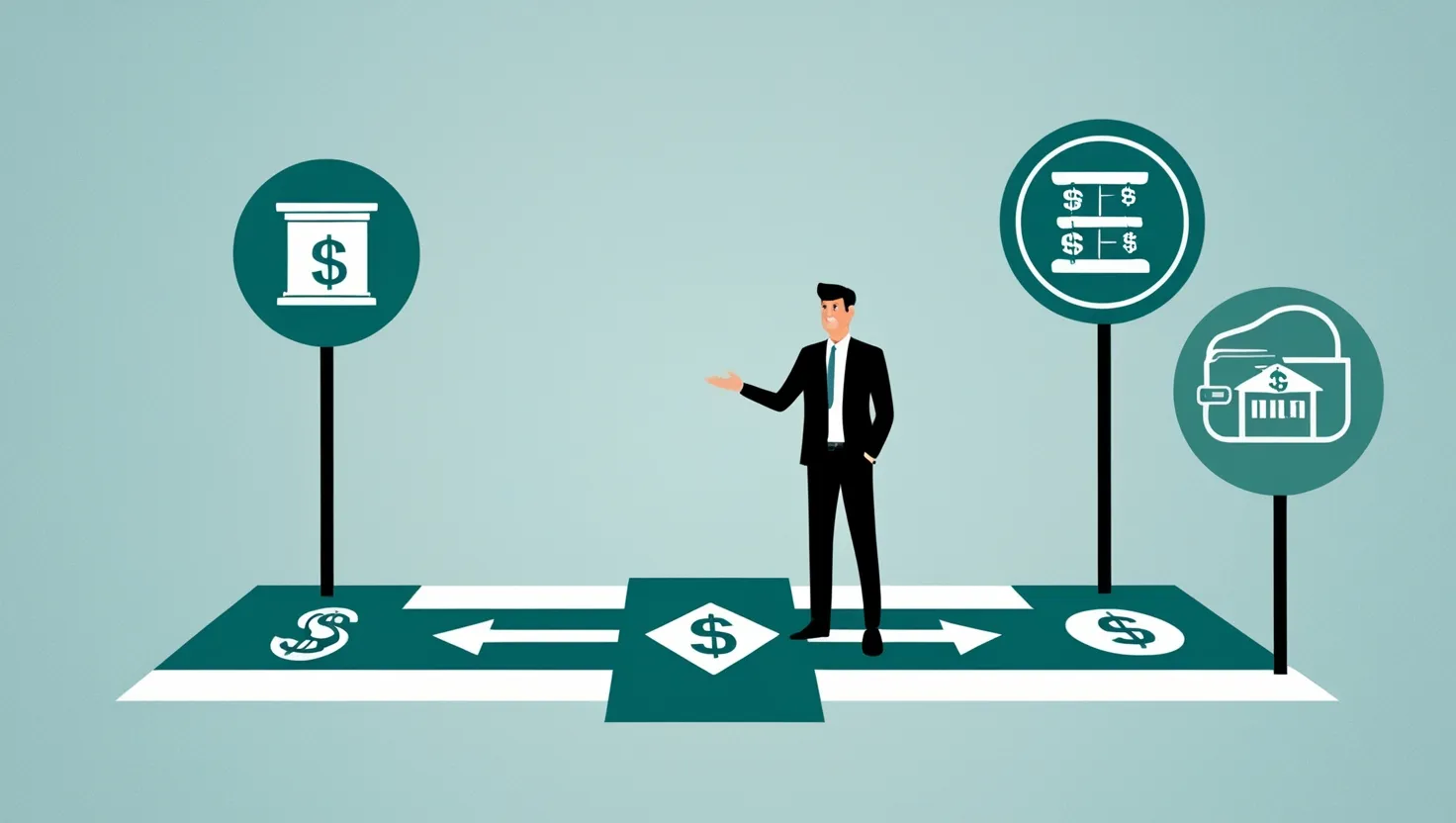As you step into your 30s, you’re likely to find yourself at a crossroads, where the decisions you make can significantly impact your financial future. This decade is filled with both opportunities and challenges, from career advancements and family planning to homeownership and debt management. Here’s how you can make the most of this critical period.
Understanding Your Financial Health
Before you can chart a course for financial success, you need to understand where you stand today. Think of it like a medical check-up; you need to diagnose your current financial health to plan for a healthier future. Start by analyzing your income and expenses. Categorize your spending into essentials like rent and groceries, and non-essentials such as dining out and entertainment. Use a budgeting app or a simple spreadsheet to track your cash flow. This clarity will help you identify areas where you can reduce spending and increase savings.
“Financial peace isn’t the acquisition of stuff. It’s living below your means and living with contentment and gratitude for what you have.” - Dave Ramsey
Maximizing Retirement Contributions
Your 30s are a prime time to supercharge your retirement fund. If you’re enjoying a higher income, aim to set aside at least 15% of it for your post-working years. Automate your contributions to retirement accounts to ensure consistent savings. This habit will not only grow your retirement savings but also protect you from the subtle creep of lifestyle inflation, where you spend more as your income grows.
Building a Robust Emergency Fund
Life is full of unexpected twists and turns, and your 30s will be no exception. An emergency fund acts as a safety net, covering sudden expenses like medical bills, car repairs, or job loss. Aim to save three to six months’ worth of living expenses. As your responsibilities grow, consider scaling up this fund to match your potential expenses. Start small if you must, but automate your savings to build this fund consistently.
Paying Off High-Interest Debt
Carrying high-interest debt, especially from credit cards, can be a significant burden on your budget. If you’re making minimum payments, you’re only paying interest on the debt you haven’t cleared. Look into options like transferring your balance to a lower-interest card or consolidating your debt. Remember, paying off high-interest debt is a crucial step towards freeing up more money in your budget for savings and investments.
“The way to get started is to quit talking and begin doing.” - Walt Disney
Diversifying Your Investment Portfolio
Investing in your 30s is about more than just saving money; it’s about building wealth and securing financial freedom. Diversification is key here. Consider investing in stocks, mutual funds, or exchange-traded funds (ETFs) to tap into the potential of the stock market. Real estate and other investment vehicles can also provide a balanced portfolio. The power of compound interest means that even small, early investments can grow exponentially over time.
Increasing Income Through Skill Development
Your 30s are an excellent time to invest in yourself. Developing new skills or enhancing existing ones can significantly boost your income. Whether it’s taking courses, attending workshops, or pursuing certifications, the goal is to increase your earning potential. This not only helps you save more but also opens up new career opportunities.
Establishing a Comprehensive Insurance Plan
Insurance is often seen as a necessary evil, but it’s a critical component of your financial plan. Health, life, and disability insurance can protect you and your family from unexpected financial shocks. Review your insurance needs regularly to ensure you’re adequately covered as your responsibilities grow.
Creating Multiple Income Streams
Having multiple income streams can provide a safety net and accelerate your savings. This could be through a side job, freelancing, or even starting a small business. Diversifying your income sources reduces your reliance on a single job and can help you weather financial storms more effectively.
“Success is not final, failure is not fatal: It is the courage to continue that counts.” - Winston Churchill
Setting Clear Financial Goals
Financial success is not just about saving money; it’s about having clear goals that guide your financial decisions. Whether it’s buying a home, starting a family, or planning for early retirement, your goals should be specific, measurable, achievable, relevant, and time-bound (SMART). Regularly review and adjust these goals as your life evolves.
Optimizing Your Credit Score
Your credit score is a reflection of your financial health and can significantly impact your ability to secure loans or credit at favorable rates. Keep an eye on your credit score by checking it regularly and addressing any issues promptly. A good credit score can save you money in the long run by reducing the interest rates you pay on loans and credit cards.
Developing a Long-Term Financial Plan
A long-term financial plan is more than just a budget; it’s a roadmap to your financial future. It should include strategies for saving, investing, and managing debt, all aligned with your long-term goals. Regularly review and update this plan to ensure it remains relevant and effective.
“Believe you can and you’re halfway there.” - Theodore Roosevelt
Putting It All Together
Making smart money moves in your 30s is about creating a balanced and comprehensive financial strategy. It involves understanding your financial health, maximizing your savings, paying off high-interest debt, diversifying your investments, and setting clear financial goals. By following these steps, you can set a strong foundation for long-term financial success and ensure that your financial future is secure and prosperous.
So, what steps will you take today to secure your financial future? Will you start by analyzing your income and expenses, or perhaps by increasing your retirement contributions? Whatever you choose, remember that every small step counts, and the sooner you start, the better prepared you’ll be for the financial challenges and opportunities that lie ahead.






